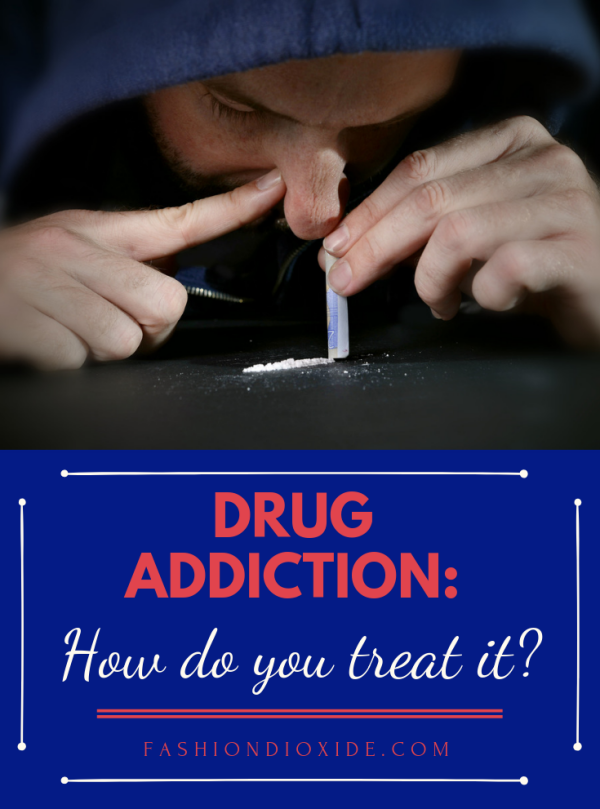As a resident of Florida, you should be asking yourself this question: How do I treat drug addiction? And here’s why. According to DrugRehab.com, 1.5 million of your fellow residents abuse illicit drugs. Of these, more than 400,000 are full-blown addicts. And almost 3,200 die every year as a result of drug use. So chances are, you know someone who is trapped by drugs and needs help. Fortunately, you can help treat their addiction, but only if you do the following.

Have Realistic Expectations
Before treating an addiction, first, evaluate your expectations. Are they realistic? For instance, do you expect all addicts to cooperate with you, to stay in rehab to the end, to never relapse? Then you’ll end up frustrated because such expectations are unrealistic.
The truth is that, despite your good intentions, some addicts resist your efforts while others quit rehab and relapse. Others recover fully and then go on to reclaim their lives. So, when you understand this simple truth, you not only make realistic goals, but you also remain positive and committed.
See Past The Addiction
An addiction controls what an addict says or does. It pushes them into desperate actions, such as manipulating, lying to, or even stealing from loved ones. And sometimes, it forces them into crime as they try to fund their next fix. When they come to you for help, this lack of control becomes evident. They say or do things to you or others that you find displeasing. However, don’t take their behavior personally. Instead, see them not as an addict, but as people in need of your compassion, and more importantly, your help.
Don’t Work Alone
When loved ones approach you for help, it’s human nature to try to help them all by yourself, to be their only support network. Unfortunately, this exclusion approach does more harm than good. For you see, drug abuse is both a mental and a physical disorder. So anyone quitting drugs need both psychological guidance and clinical supervision, which are only found at a rehab center. Unfortunately, finding a rehab is tricky. Many of them exist, each offering different treatment services for different drugs.
So to find a suitable Florida drug treatment program, go online. Try searching ‘drug rehab in Parkland‘ or whichever city works best for you and begin calling around to find the best treatment center. Once you find one, contact the facility and ask as many questions about their program as you can. And when satisfied, make an appointment. Then enroll your loved one there.
Act Fast
Addicts and their loved ones are often in denial about the seriousness of addictions. They either assume they can control the problem or think they should wait for it to resolve itself. Unfortunately, neither of the two approaches works. The addict only sinks deeper into their addiction and suffers greater mental, physical, and emotional trauma. As a result, always advise addicts and their families against delaying. Better still, insist on and then take immediate action. For starters, inform them about the benefits of a treatment. Inform them of what treatment centers offer. Then take the initiative and connect them into the center.
Don’t Enable Addictive Behavior
When treating an addict, be as supportive as you can. But don’t enable their addictive behavior, nor shield them from the consequences of their substance abuse. Doing so only delays their recovery. So how do you stop enabling an addict?
First, never lie to them, to yourself, or to others about their addiction. Also, never give them access to drugs or money to buy drugs. And just as important, never attempt to fix their ruined finances, careers, or relationships for them. In fact, you shouldn’t even do their chores.
Don’t Become Co-Dependent
In the course of treating an addict, you develop a relationship with them and even care for them. But that is as far as the relationship should go. It should never develop into co-dependence where, as a result of your attachment to the addict, you lose sight of their recovery. So now instead of feeling responsible for them, you dote over them. And instead of setting boundaries, you start compromising with and even enabling them. In the end, their recovery suffers.
Look Out For Your Welfare
Enabling behavior and codependent reveals one thing. That you can get so wrapped up in another person’s problem, that you forget your own. For instance, every time you do an addict’s chore, you spend less time doing your own.
And when you fix their money problems or give them money to buy drugs, you ruin your finances. Likewise, trying to fix their relationships or careers leaves you less time to focus on your own. For this reason, as you treat drug addictions, remember to look out for your welfare.
Treating drug addictions is easy if you have realistic expectations and are willing to see the person behind the addiction. It also helps if you’re prepared to work with others and to act fast when necessary. But the most important thing is to avoid addictive or codependent behavior while looking out for your welfare.

Reply